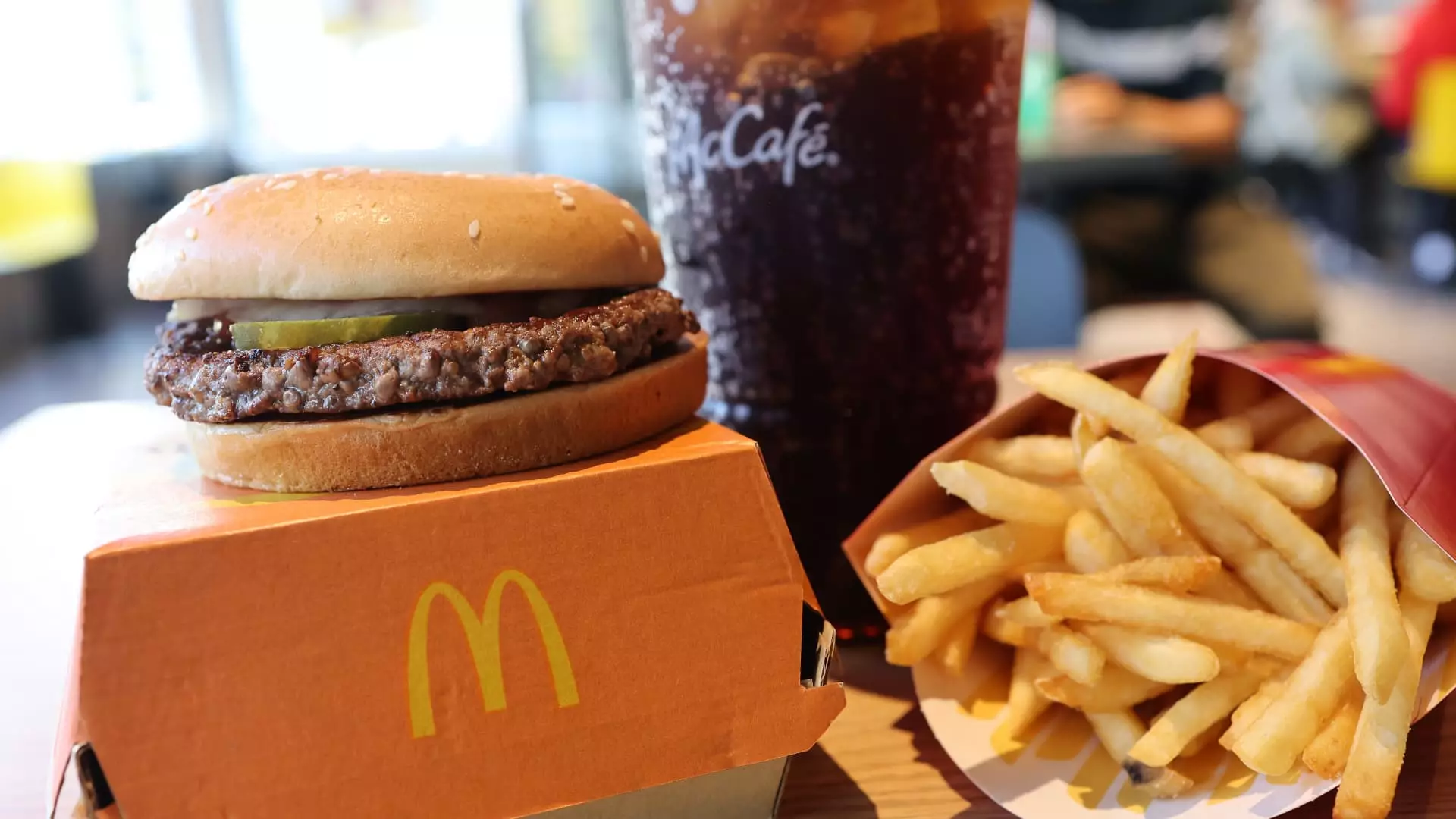In recent weeks, Morgan Stanley has stirred the pot by downgrading McDonald’s from overweight to equal weight. This shift reflects an acute awareness of looming challenges in the fast food sector, suggesting that even industry giants like McDonald’s are not immune to economic shifts. With a price target adjustment from $329 to $324, the forecasted upside is merely a tepid 5%. This decision speaks volumes; it indicates that the wave of economic policy uncertainty is crashing down on consumer behavior. McDonald’s has long relied on a stable base of lower-income consumers, but as inflationary pressures and economic volatility emerge, this demographic finds itself squeezed tighter than ever.
The Health and Wellness Paradigm
Another looming challenge is the ongoing cultural shift toward health and wellness. The fast-food market, once the bastion of quick and cheap meals, is now grappling with evolving consumer preferences. Today’s consumers are more informed and discerning, often opting for healthier choices over traditional fast food fare. As Brian Harbour points out, this cultural shift is a notable structural headwind for McDonald’s. The brand has tried to keep pace, introducing salads and other ostensibly healthier options, but these offerings have not successfully resonated with a population that increasingly prioritizes authenticity in its food choices. The result is a compounding effect on sales, especially as health-conscious competitors emerge and capture the market share.
Defensive Stance Fails to Inspire
Harbour acknowledges that McDonald’s has displayed admirable performance ytd, with a respectable 6% uptick. Yet, defensive strategies only work for so long before they become a crutch. The company may find itself embroiled in a rut where its stock stagnates, and there are indications that its stock may not outperform its peers for much longer. The defensive results herald a denial of deeper-rooted issues that are reflective of changing consumer sentiments. The question lingers: How long can a company rely solely on its historical dominance without innovating and adapting to new expectations?
Valuation Concerns and Potential Downturns
From a valuation standpoint, Harbour’s remarks highlight that while McDonald’s may appear relatively healthy, the possibility of a de-rating looms closely. This ‘de-rating’ is not just a financial term; it symbolizes a broader unease among investors. Should the fast-food giant falter to adapt to these structural threats, the repercussions will be catastrophic. A healthy valuation in historical context does not insulate McDonald’s from market fluctuations or shifting consumer sentiment. Investors need to brace themselves: if McDonald’s fails to leverage its market leadership amidst changing tides, they could find themselves facing significant losses.
The Analyst Divide
Despite Morgan Stanley’s recent bearish outlook, it’s worth noting that a significant portion of analysts—22 out of 38—remains bullish on McDonald’s. This generates a paradoxical situation: while some analysts acknowledge the troubling realities, others cling to the belief in the company’s resilience and historical dominance. This fracture in sentiment introduces uncertainty, possibly leading investors down a precarious path in which optimism blinds them to the very real risks that lie ahead.
In a rapidly-changing economic landscape, time will tell if McDonald’s can adapt, innovate, and ultimately thrive—or if it will merely become another cautionary tale in the annals of corporate history.


Leave a Reply